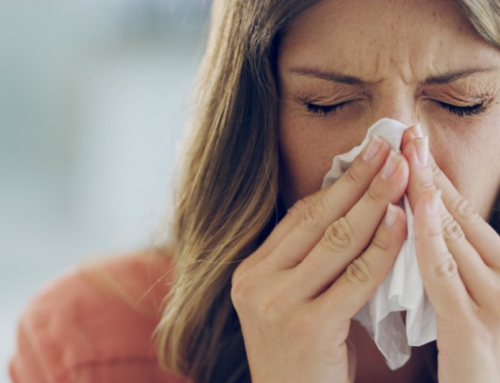Milliyet Newspaper – May 10, 2021
Food allergies have increased tremendously in recent years all over the world and in our country. It is suggested that this increase is caused by the rapid change in environmental conditions brought about by western type life. President of the Food Allergy Association Prof. Dr. Dost Zeyrek, President of Allergy and Asthma Association Prof. Dr. Ahmet Akçay gave information about food allergy.
- Causes That Increase The Risk Of FoodAllergy
- Eczema Increases The Risk Of Developing Food Allergies
- Detergents and Cleaning Agents Can Increase Food Allergy!
- Starting Solid Foods Early Prevents The Development Of Food Allergies
- Pet Feeding At Home May Prevent The Development Of Food Allergies
- Caesarean Section Increases Risk Of Food Allergy
- Food Proteins In Soaps, Shampoos and Moisturizers Invite Food Allergies
- Starting Antibiotics Early and Unnecessary Invites Food Allergy
- Processed Foods Can Cause Food Allergies
- Food Allergies Are Less Common In Breastfed Babies
- Vitamin D Deficiency Increases The Development Of Food Allergies
Causes That Increase The Risk Of FoodAllergy
Food allergy develops as a result of genetic, environmental causes and gene-environment interaction. Food allergy is more common especially in children whose mother, father or sibling has an allergic disease. However, since a single gene is not responsible, this effect is in the form of susceptibility.
Factors such as lack of exposure to hygiene and microbial factors, composition of the gut microbiota, diet, obesity, low intake of omega 3, antioxidant foods, use of antacid drugs, vitamin D deficiency and delayed initiation of complementary foods, and environmental chemical exposure, food allergy in countries with a westernized lifestyle. It has been suggested that this contributes to this alarming increase in the rate of
Eczema Increases The Risk Of Developing Food Allergies
Eczema is a risk factor strongly associated with food allergies. It has been reported that infants presenting with eczema are 11 times more likely to have peanut allergy and 6 times more likely to have egg allergy. It suggests that changing the skin barrier facilitates contact with the allergen. What’s more, mutations in filaggrin, a protein essential for maintaining the skin barrier, have been associated with an increased risk of food allergies.
Detergents and Cleaning Agents Can Increase Food Allergy!
Especially cleaning materials containing chlorine can be effective in the deterioration of the skin barrier as well as the respiratory tract barrier. It may be beneficial to prefer hypoallergenic detergents and cleaning materials that do not leave residue, and to perform a double rinsing. Deteriorated skin barrier, soaps, shampoos and moisturizers containing food protein can cause food allergy to develop more easily.
Starting Solid Foods Early Prevents The Development Of Food Allergies
It is reported that taking food by mouth early is beneficial for the prevention of food allergy. In children who have completed 4 months, starting foods as tasting early may be a useful approach to prevent the development of food allergy.
Pet Feeding At Home May Prevent The Development Of Food Allergies
Protective epidemiological factors against food allergy include having older siblings and early life pet exposure. Pet ownership is associated with high microbial diversity in the home environment.
It is also a fact that taking pets into the house before the child is one year old also reduces the development of pet allergies later on. For this reason, when we consider the benefits for food allergies, especially for families who want to keep a pet at home, bringing a pet to the house before your child is born will be a useful approach in terms of preventing the development of food allergy and the development of pet allergy in the future.
Caesarean Section Increases Risk Of Food Allergy
The gut is believed to be sterile in the womb, although several reports describe the meconium (first infant faeces) microbiota composition and suggest that microbial colonization may begin in the womb. Meconium is the first poop of a newborn baby, and four major bacteria in the gut (Actinobacteria, Bacteroides, Firmicutes, and Proteobacteria) have been found in this poop.
Studies show that establishing and developing a normal gut microbiota and immune system requires sustained microbial exposure during the first months of life, and this can be compromised by excessive hygiene. It has been suggested that in the first three years of life, the microbial diversity of the gut reaches the level of microbial diversity in the adult gut. In normal born children, beneficial microbes settle in the baby’s intestine and contribute greatly to the maturation of the intestinal barrier and the development of the immune system, and prevent the development of food allergy. In babies born by cesarean section, since the protective microbes cannot settle in the baby’s intestine, the intestinal barrier cannot develop sufficiently, as a result, food allergens pass through the intestine more easily and the immune system responds in an allergic way. As a result, the likelihood of developing food allergies increases.
Residues of cleaning agents used in the dishes can also adversely affect the intestinal bacterial diversity, causing intestinal permeability, which may lead to the development of food allergy. For this reason, it may be beneficial to choose cleaning products with low residue-leaving properties and to perform a double rinsing.
Food Proteins In Soaps, Shampoos and Moisturizers Invite Food Allergies
There is growing evidence to suggest that the skin is the main site of sensitivity to food allergens, particularly peanuts. Most patients with peanut or nut allergies experience their first reaction the first time a food is eaten. Therefore, it has been suggested that sensitization to the allergen begins in the womb and also occurs through skin-to-skin exposure to breast milk or another route of exposure.
A relationship was found between the skin contact of proteins such as wheat, milk and soy in some soaps and the development of allergy to these foods. Skin exposure to food proteins has been reported to increase food allergy susceptibility. The absence of food proteins in the products used for washing and moisturizing babies will be beneficial in preventing the development of food allergies.
Starting Antibiotics Early and Unnecessary Invites Food Allergy
Especially in the first 2 years of age, starting antibiotics increases the development of allergic diseases. Because antibiotics cause the destruction of beneficial bacteria in the immature intestine, impairing intestinal permeability, and as a result, food allergy develops more easily.
Processed Foods Can Cause Food Allergies
The relationship between nutrition in infancy and the development of allergic diseases is not yet fully understood. Exposure to increased food diversity in early life is inversely related to allergic diseases, including food allergy. However, relatively few studies have identified certain dietary components that may be a risk for the development of food allergy.
There are publications stating that processed foods, emulsifiers (substances that allow the mixing of foods) increase intestinal permeability. Therefore, processed foods also increase the development of food allergies. Organic nutrition can contribute to the prevention of intestinal permeability and the development of food allergy. It may be beneficial to consume less fast food foods.
Food Allergies Are Less Common In Breastfed Babies
Babies can be breastfed, formula fed, or experience a combination of both. The bacterial composition of breast milk varies depending on the mother’s dietary habits, genetic background and demographic factors.
Withdrawal of breastfeeding is a more important factor in the composition of the gut microbiota than the introduction of solid foods. Breast milk provides immunological protection in the baby’s immune system. Immunomodulatory and protective properties from breast milk have been associated with several components, including immunoglobulins, glycoconjugates, and oligosaccharides.
Vitamin D Deficiency Increases The Development Of Food Allergies
Vitamin D deficiency is associated with food sensitivity and IgE-mediated food allergy. It has been reported that the probability of egg and peanut allergy is increased in infants with vitamin D deficiency. The frequency of food allergy/anaphylaxis is higher at higher absolute latitudes where there is insufficient UVB intensity in autumn and winter for adequate vitamin D synthesis.
Low vitamin D causes compromised barrier function, changes in the microbial composition of the gut and, together with effects on antigen presenting cells and T cells, predisposes a person to allergic responses to food allergens. As a result, vitamin D deficiency increases the risk of developing food allergy. It has been reported that cruciferous vegetables such as cabbage, Brussels sprouts and broccoli, among other dietary factors that suppress food allergy, may reduce the development of food allergy. Dietary factors may be directly immunomodulatory or suppress food allergy through modulation of the gut microbiota.






